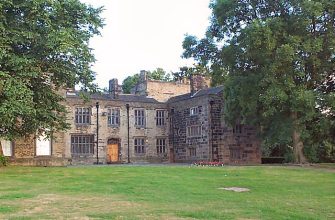Nestled in the heart of Tring, Hertfordshire, the College Lake Nature Reserve is a haven for nature enthusiasts, wildlife photographers, and birdwatchers. This former chalk quarry has been transformed into a thriving wetland habitat, teeming with diverse species of flora and fauna. The reserve’s picturesque landscape, coupled with its rich biodiversity, makes it a must-visit destination for those seeking to immerse themselves in nature’s splendour. The reserve’s conservation efforts have played a pivotal role in preserving and enhancing this unique ecosystem, making it a living testament to the power of ecological restoration.
History of College Lake Nature Reserve
The College Lake Nature Reserve has a fascinating history that dates back to the 1960s when it was a chalk quarry. The quarrying activities left a large pit that gradually filled with water, creating a man-made lake. Recognising the potential of this site as a wildlife habitat, the Berks, Bucks and Oxon Wildlife Trust initiated a project in the 1980s to transform the quarry into a nature reserve. Today, the reserve is a thriving wetland habitat, home to a wide variety of wildlife species.
Attractions at College Lake Nature Reserve
The reserve offers a plethora of attractions for visitors. These include:
- Wildlife Photography: The reserve’s diverse wildlife and stunning landscapes provide ample opportunities for wildlife photography. From capturing the antics of water voles to photographing the majestic flight of a red kite, the possibilities are endless.
- Birdwatching: With over 200 species of birds recorded at the reserve, birdwatchers are in for a treat. The reserve’s bird hides offer excellent vantage points for observing and photographing these feathered creatures.
- Nature Trails: The reserve boasts several nature trails that meander through different habitats. These trails offer visitors a chance to explore the reserve at their own pace and discover its diverse flora and fauna.
Conservation Efforts
The conservation efforts at College Lake Nature Reserve are focused on maintaining and enhancing its wetland habitat. These efforts include managing water levels to create ideal conditions for wetland species, maintaining the grasslands to support a variety of insects and birds, and preserving the woodland areas to provide habitats for bats and other species. The reserve also runs educational programs to raise awareness about the importance of conservation.
Practical Information for Visitors
College Lake Nature Reserve is open throughout the year, and admission is free, although donations are welcome to support the reserve’s conservation efforts. The reserve’s visitor centre houses a café and a shop selling wildlife-related products. Guided tours are available for groups, but these need to be booked in advance. Visitors are advised to wear suitable footwear as the trails can get muddy. Also, remember to bring your binoculars for birdwatching and your camera for wildlife photography.
Tips for Tourists
Here are some tips for tourists visiting College Lake Nature Reserve:
- Visit early in the morning or late in the afternoon for the best wildlife viewing opportunities.
- Stay quiet and patient while birdwatching or wildlife photography. The animals are more likely to appear if they don’t feel threatened.
- Respect the reserve’s rules and regulations to help preserve its unique ecosystem.
- Don’t forget to check out the visitor centre’s exhibitions to learn more about the reserve’s wildlife and conservation efforts.
In conclusion, College Lake Nature Reserve offers a unique opportunity to explore a thriving wetland habitat, engage in wildlife photography and birdwatching, and learn about conservation efforts. Its rich history, diverse wildlife, and stunning landscapes make it a must-visit destination for nature enthusiasts.








